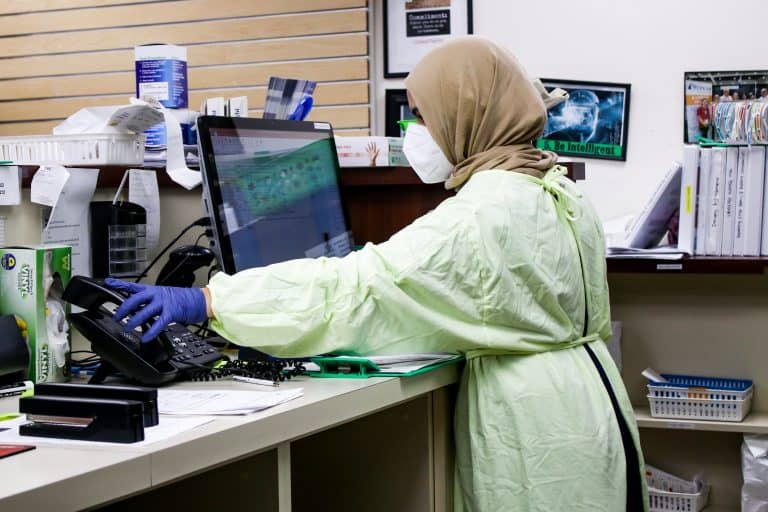Most individuals who test positive for Covid-19 won’t need to be hospitalised but will need to self-isolate at home. But does this put the rest of the family at risk of contracting SARS-CoV-2? Dr Sabir Karriem, an expert in Palliative Care and Pulmonology, offers advice on how to prepare your home for a Covid-19 positive person.
We know that Covid-19 spreads in two primary ways:
- when an uninfected person breathes in infectious respiratory droplets when an infected person coughs, sneezes or breathes.
- an uninfected person touches a surface contaminated with these droplets, then touches their face; eyes, nose, mouth.
Thus, if you live with someone infected with Covid-19 it’s vital to stop these primary avenues of infection.
Basic Knowledge of Care
Reportedly, infected individuals can display an array of symptoms including sore throat, loss of smell and taste, fatigue and fever or chills amongst other symptoms.
Ventilation and Shared Spaces
Dr Karriem adds that, if possible, sick persons must use a separate bathroom and bedroom. They should have their own ‘sick’ area that keeps them isolated from others in the house and limits the spread of the virus. If this is not possible, and space needs to be shared, ensure the space has good cross-ventilation by opening windows. In these shared spaces, people must maintain a 2-meter distance.
"Avoid having any unnecessary visitors, especially visits by people who are at higher risk for severe illness.'"
PPE for You and the Patient
The World Health Organisation has a comprehensive guide on homecare for Covid-19 patients and individuals suffering from other ailments.
Personal Protective Equipment (PPE) is a crucial aspect of home care. Dr Karriem says that the caregiver, if possible, should be healthy and not be at a high risk of contracting Covid-19 or suffering from other diseases if infected.
The number of caregivers must be limited to one person or a select team of individuals.
The caregiver must protect themselves and wear PPE: facemasks, single-use gloves and single-use aprons when caring for a patient. Any infectious materials must be disposed of in a plastic bag into a bin with a lid.
Similarly to when going to the shop or the office; caregivers must sanitise their hands with alcohol-based hand sanitiser before and after wearing the PPE.
"Thoroughly wash your hands before having dinner, after using the bathroom, after coughing or sneezing, and before touching your eyes, mouth and nose, after completing patient care and leaving the 'Patient Room'."
Disinfecting Everything, Everywhere, All The Time
No specific disinfectant routine is needed when caring for someone with Covid-19. But the frequency will exponentially increase. Habitual items used by the patient; cutlery and dishes need to be cleaned thoroughly with hot water and soap, or steam. Other objects like night tables, the bed frame and other bedroom furniture must be disinfected daily with disinfecting alcohol wipes, bleach or chlorine-containing disinfectant.
Dr Karriem adds that caregivers need to “make sure the floor is clean and dry; and (that) there (are) no damp corners, which is an ideal breeding ground for viruses and bacteria.”
“…Cleaning tools are blind spots for disinfection”, so they should be cleaned regularly. Dr Karriem advises that you soak all utensils in a chlorine-containing disinfectant and allow to air dry.
In tangent with the physical care of the patient, looking after your mental and emotional health is valuable. Suggestions include giving a close friend a call, drinking water and resting in a quiet space. Dr Karriem says that “these much-needed breaks relieve stress, keep you focused on important tasks, and help you think more clearly.”
Additional links:
https://www.who.int/docs/default-source/coronaviruse/situation-reports/20200402-sitrep-73-covid-19.pdf?sfvrsn=5ae25bc7_2
https://www.cdc.gov/coronavirus/2019-ncov/if-you-are-sick/care-for-someone.html
Dr Karriem suggests that everyone set up a back-up care plan for when someone in the home (including yourself) becomes infected with Covid-19.” This could put your mind at ease because your plan won’t leave you scrambling or worrying while you’re recovering.”









